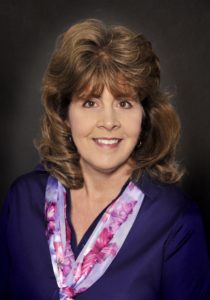By Janet Tucker, PhD, RNC-OB
Have you often thought when you find out a co-worker is working on a graduate degree, “That’s not for me — I don’t have the time or the money and besides I enjoy what I am doing now”? I did not seek a graduate degree until my children were in high school and after beginning; I wish I had started on that journey earlier! Let’s address some of the myths.
- I do not have time in my life right now.
I delayed a pursuing graduate degree because I thought I would be on campus as much as undergraduate classes require. Many graduate nursing programs offer online and on campus options or a combination. I often advise nurses, just stick your toe in the water and try one class. You can fit the assignments in your life no matter what shift you are currently working. Just trying one class a semester is “doable”
- I am not sure I can afford the tuition
There are many options-private and public colleges. There are scholarships and some employers offer tuition reimbursement. It is an employee benefit-check it out!
- I have not been in school in years. I am not sure I am smart enough for graduate school.
I hear this one a lot. You are smart-you are a RN and passed boards! Hands down for most nurses, our first program is the most difficult whether it was a BSN, diploma or AD program. You will be pleasantly surprised that a graduate degree builds on your existing knowledge and you will be encouraged to focus on your specialty area for assignments. You will often be able to combine an assignment with a project you wanted to do at work anyway. Plus for all of us “seasoned” nurses, when we have to use an example from practice, we have years of case studies and examples to use in assignments.
- I really enjoy being at the bedside, I don’t want to do anything different right now
Great! We need advanced degree nurses using their expertise and practicing evidence based practice in every setting. A graduate degree will open doors that you may not even think about right now. There may be an amazing opportunity that will come your way that requires an advanced degree.
- I am not sure I can keep up with the technology now-discussion boards and on line classes.
I was not confident either, however if you have middle or high school age children or neighbors, they will enjoy helping you. You will quickly adjust just as you have to EMRs.
I share all these myths because this is what I heard as I was working on my MSN and then a PhD. I began my MSN part time at the age of 50 when I was working about 24 hours a week and had all three children still at home. I did not intend to pursue a doctorate degree, however I became fascinated at the opportunity to influence care through research.
I started on my PhD one year after completing my MSN. I worked full-time during my PhD journey and I completed it within 4 ½ years. To add to the craziness, all three of my children got married during this time. It has now been a year since I graduated and I am an assistant professor at a university. I am able to continue to work occasionally in a clinical setting, conduct research, and teach the next generation of maternal child nurses. I never would have dreamed that this would be my journey when I began taking that first graduate course. Therefore, if you are considering giving it a try, jump in, the water really is great. There are many others ready to encourage you along the way.
 Janet Tucker is an assistant professor at the University of Memphis Loewenberg College of Nursing, where she is currently teaching maternal child nursing. She completed her MSN in 2010 and PhD in 2017. Her research interests are expectant women experiencing a fetal anomaly diagnosis.
Janet Tucker is an assistant professor at the University of Memphis Loewenberg College of Nursing, where she is currently teaching maternal child nursing. She completed her MSN in 2010 and PhD in 2017. Her research interests are expectant women experiencing a fetal anomaly diagnosis.
AWHONN Resources
With generous support from individual and corporate donors, AWHONN’s Every Woman, Every Baby charitable giving program provides the opportunities to AWHONN members to apply for research grants and project grants who work in continue to improve the health of mothers, babies and their families. Additionally, AWHONN’s commitment to support emerging leaders also provides opportunities to apply to academic scholarships and enhance their professional development through attending AWHONN’s Annual Convention and information of education resources. , For more information on AWHONN scholarships and professional development opportunities visit http://www.awhonn.org/page/awards



 Liz has over 25 years of Women’s and Children’s experience and has devoted her professional career to the care of women and children with roles as a staff nurse, nursing educator and most recently executive leadership. She has presented nationally on patient experience and mentoring new nursing leaders. In 2008, Liz was named to the Great 100 Nurses of North Carolina, and is a member of Sigma Theta Tau. In addition to her clinical work and expertise, Liz has taught at the baccalaureate and graduate levels at East Carolina University College of Nursing. She is board certified as a Nurse Executive by the American Nurses Credentialing Center.
Liz has over 25 years of Women’s and Children’s experience and has devoted her professional career to the care of women and children with roles as a staff nurse, nursing educator and most recently executive leadership. She has presented nationally on patient experience and mentoring new nursing leaders. In 2008, Liz was named to the Great 100 Nurses of North Carolina, and is a member of Sigma Theta Tau. In addition to her clinical work and expertise, Liz has taught at the baccalaureate and graduate levels at East Carolina University College of Nursing. She is board certified as a Nurse Executive by the American Nurses Credentialing Center.
 Amy is an ABSN student at MGH Institute of Health Professions, Boston. She was a stay at home mother for 12 years, a community coordinator for a non profit kids running program and a volunteer at Dana Farber Cancer Institute in Boston before deciding to enter the nursing field. With extensive volunteer experience from a camp for blind & visually impaired adults and children, to co-president of an elementary school PTO, she enjoys working with diverse groups of all ages. Amy aims to work in labor and delivery after graduation in August 2017 but is also interested in global health and epidemiology. She has intentions to keep making a difference in the lives of those she may never meet again.
Amy is an ABSN student at MGH Institute of Health Professions, Boston. She was a stay at home mother for 12 years, a community coordinator for a non profit kids running program and a volunteer at Dana Farber Cancer Institute in Boston before deciding to enter the nursing field. With extensive volunteer experience from a camp for blind & visually impaired adults and children, to co-president of an elementary school PTO, she enjoys working with diverse groups of all ages. Amy aims to work in labor and delivery after graduation in August 2017 but is also interested in global health and epidemiology. She has intentions to keep making a difference in the lives of those she may never meet again.